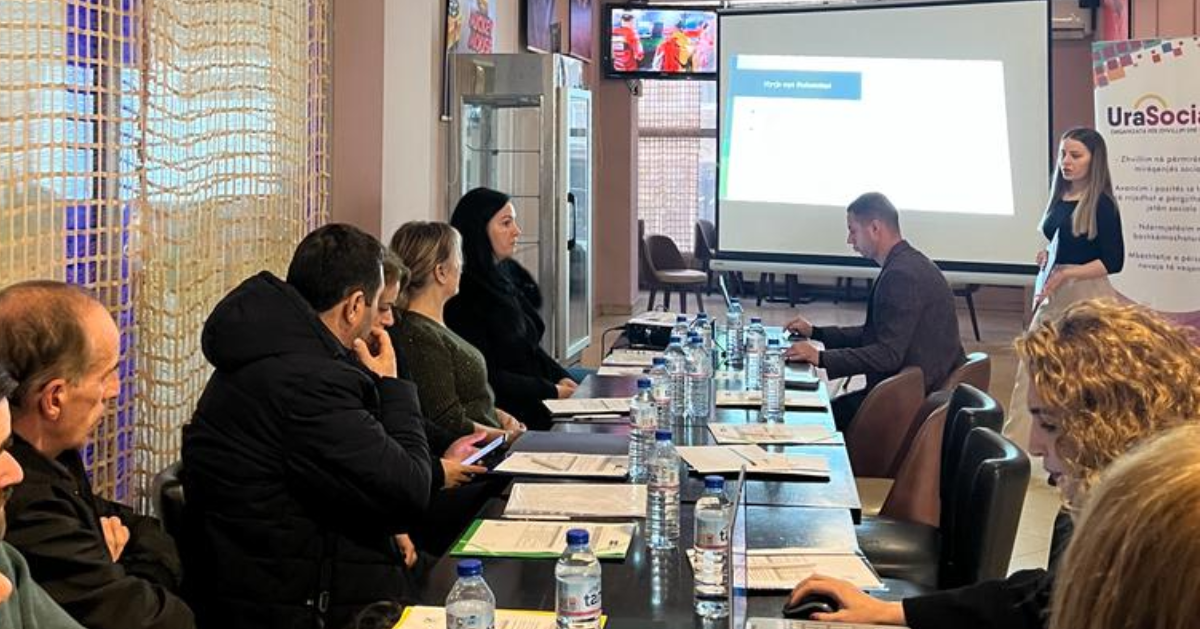The fight against gender discrimination and schools’ level of awareness about this problem is becoming a setback for Kosovo. A larger issue is that this appears to be in smaller municipalities as a result to minimal access to trainers and programs to inform teachers on this topic.
Schools are considered the best places and environments for individuals with different political and social affiliations come together to learn, debate, and promote rational discussion and tolerance.
These educational institutions are places that require constant growth in order to accept the social, political, economic, and cultural changes of society.
However, the lack of training for teachers and minimal awareness of issues relating to human rights hinder the advancement of schools and the education system.
A specific problem is the lack of training programs to address discrimination and gender inequality.
How is the situation in the Municipality?
KALLXO.com has contacted the Municipal Directorates of Education from seven regions of Kosovo and most of them have confirmed that no trainings programs have been held for teachers to address discrimination and gender inequality.
The Director of Education in the municipality of Kaçanik , Zahir Doda, told KALLXO.com that there were no such trainings for teachers, although he expressed the importance of holding these trainings on this topic.
“There was no such training for teachers… as far as I know there are none. I believe there should be. Even though we have not thought about it, there is a need for it. If others have created it [trainings], we will continue with the same movement” – said the director.
“I believe it is necessary, especially in parts of our municipality, which needs it”- he added.
The Director of Education in Kamenica, Afrim Dervishi, also confirmed that they do not have such programs for teachers.
“No, there is no program that teachers have completed that deals with gender inequality. For the year and half I have been here, there has not been,” said Dervishi.
However, he mentioned that a training on the importance of gender equality was held a month ago by directors of the municipalities.
“We have held a training on the role and importance of gender equality, other changes, publications… The directors of education, the directors of several municipalities have been trained,” said the head of the Directorate of Education in Kamenica.
“We have also received advice from the budget officials in the next year’s planning with gender equality in mind,” he added.
Even the municipality of Rahovec has claimed that they do not have such trainings for teachers, even though the Director of Education, Avni Morina, has stated that if such trainings were held by MASHTI, they would be opened to it.
Morina mentioned that they have three coaches in this municipality and described that a challenge was the lack of trainers.
“The primary challenges for us are the lack of sufficient staff for training because we don’t have enough trainers and maybe it would be helpful if the Ministry of Education also assisted us in this aspect,” he said.
Morina explained that before the school year, during August, in this municipality, new teachers receive training related to the curriculum and teaching, but confirmed that they did not have any training on gender equality.
“In terms of gender equality and discrimination, we have not had any training from MASHTI in recent years, but we would be open to it if MASHTI organized one.”
Also, the municipality of Klina does not have a trainer for gender equality or discrimination.
“In our municipality, we do not have trainers who deal with gender equality or discrimination. Also, recently we have not had any training for teachers related to such topics” – this answer was directed to KALLXO.com by the Municipal Directorate of Education in Klina.
Similar answers were given by the director of the DKA in Lipjan, Rasim Hasani.
“We don’t have training for teachers in the topic you mentioned,” said Director Hasani.
Meanwhile, Dardan Abazi, Director of Education in the municipality of Vushtrri, told KALLXO.com that they do not have training programs for the challenges of gender discrimination, but he mentioned that the topics of gender equality and the fight against discrimination are integrated in the educational programs.
“In addition, the Gender Equality Office in the municipality is very active in holding lectures in schools, workshops and various discussions that also deal with topics such as gender equality” – answered Abazi for KALLXO.com.
Of the seven municipalities contacted by KALLXO.com, only the Municipality of Suhareka confirmed that trainings related to gender equality were held in schools.
However, the head of this department, Remzi Bajselmani, has shown that these trainings were held by non-governmental organizations.
“We have had these trainings in schools from various NGOs, but not within out staff. However, there were meetings…”.
According to Bajselman, these trainings were not held by the Ministry of Education, Science, Technology and Innovation (MESTI).
“I don’t remember that MESTI has done something like this,” he said.
The need to train teachers
The non-governmental organization (NGO) for social integration and development “Follow Up Kosova” is one of the NGOs that has held trainings on gender equality, violence and sexual education in primary and secondary schools.
Agmie Osmani, the director of this organization, told KALLXO.com that during these activities they noticed that many schools did not have these trainings earlier.
“As an NGO, we have attempted with schools because we have held trainings on gender equality, the topic of violence and we have also touched a little on the topic of sex education. We have noticed that most schools have not had previous training. We have held trainings mainly for the municipality of Pristina” – she said.
“Even if they have had training, most of them have been from NGOs who have held it on their own free will. But I have not heard of any initiative (for such trainings) that was taken by public institutions” – added Osmani.
Furthermore, she has mentioned that during the trainings, they have noticed many times when students and teachers have had difficulties in understanding some basic terms of gender equality, violence and sexual education.
“We as an organization think that one of the reasons why schools struggle so much with gender equality is due to the fact that in our country there is no sexual education in the curriculum and some topics are left without being discussed with the students” – she said.
Osmani emphasized that there are cases when teachers take part in the patriarchal mentality themselves and stated example cases where teachers separate the professions between girls and boys, and uphold a stigma of talking sexual education topics.
“For example, when talking about the menstrual cycle in schools, boys usually leave the class and remain apart from the girls, which is a very big indicator that they think that the menstrual cycle is a topic that only girls should know” – she concluded.
Besides the lack of training, the issue and lack of motivation for the students is also the explanation of the lesson through traditional styles and without any new developments.
For this reason, Riga Raci, the representative of the Steering Council of the Council of Students of Kosovo in the Municipality of Fushë Kosova, considers that training programs for high school teachers on discrimination and gender equality should be mandatory.
“We, as the Council of Students of Kosovo, think that trainers and training programs for teachers on discrimination and gender equality should be mandatory, since a large number of teachers have held on to traditional norms, which is negatively affecting the new generations” – said Raci.
She described this situation as worrying.
“For us as the Council of Students of Kosovo, it would be very worrying if these programs do not start as soon as possible because we want all new generations to be motivated to work and not feel discrimination in the future” – she added.
Education expert, Arbisa Shefkiu from the EdGuard Institute, has said that the lack of specific training on discrimination and gender equality for teachers is an urgent issue that needs to be addressed and education institutions and providers of these trainings/programs should take them into more consideration prior to the licensing of certain trainings.
“Taking into account the developments in the world of globalization, it is essential that teachers be equipped with knowledge, techniques and strategies in order to promote gender equality within school facilities and to challenge different stereotypes” – said Shefkiu.
According to her, teachers play a key role in shaping young people and creating inclusive learning environments, but there are few training programs available for them that relate directly to specific topics, such as discrimination and gender equality.
“The provision of specialized training in these fields will increase the teachers’ abilities to create inclusive and equal learning environments for all students,” said Shefkiu.
She added that it is essential that educational institutions and policy makers recognize the importance of investing in specialized training programs to equip teachers with the knowledge and skills needed to tackle discrimination and promote gender equality effectively.
The role of SBASHK
Raising the voice for the rights and advancement of teachers is often done by the United Union of Education, Science and Culture of the Republic of Kosovo (SBASHK), which is an organization independent from the state and political parties, which lobbies for the interests of employees in public and private institutions of education, science and culture.
In a statement for KALLXO.com, the vice president of this union, Vjollca Shala, said that they support the idea that teachers should be trained to address discrimination and gender equality, although according to her, the SBASHK does not have the direct competence to influence this issue.
“As SBASHK, initially we do not have any complaints from any teacher who has been discriminated against or violated from the aspect of gender equality. However, we are in favor of having training programs on discrimination and gender equality in order for teachers to be trained and know how to address such a violation that is done either in terms of discrimination or gender equality” – said Shala for KALLXO.com.
“MASHTI should handle with creating training programs… We as SBASHK can indirectly lobby” – she added.
Shala has also not ruled out the possibility that SBASHK can prepare a training program for teachers if needed.
“If we were to experience a violation or discrimination, then of course we would think of preparing such a training program ourselves, either through the heads of unions at the municipal levels, or even teachers to prepare a program directly. And of course, once the Ministry of Education announces the application for the training programs accreditation, we will apply” – answered Shala.
MESTI’s promise: Trainings are planned for next year
KALLXO.com has also addressed the Ministry of Education, Science, Technology and Innovation (MESTI) to get an answer regarding the lack of teacher trainings for addressing the topics of discrimination and gender equality.
Edona Kutleshi Maliqaj, media adviser in this ministry, told KALLXO.com that MESTI has organized information sessions with teachers about respecting gender equality every school year.
However, Kutleshi-Maliqaj emphasized that as far as discrimination is concerned, trainings with teachers are planned for 2024.
She mentioned that even in school subjects, topics for awareness of non-discrimination and gender equality are addressed.
“In MESTI’s documents, such as in the Kosovo Curriculum, addresses the topic of non-discrimination and gender equality in subject programs and in cross-curricular programs. Then, there is also a national policy for non-discrimination according to the Law on Protection from Non-Discrimination” – she said.
(Kallxo.com’s article)







